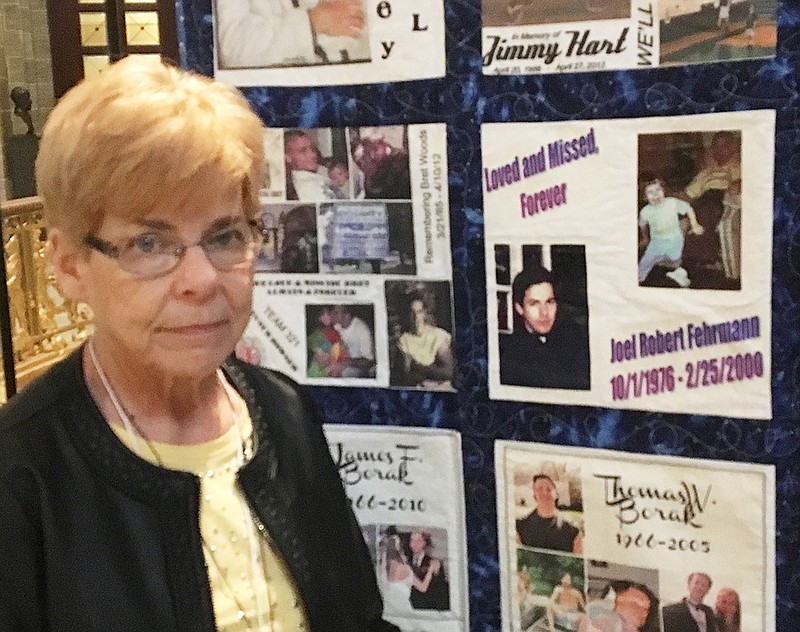Becca Pamperl's voice, normally steady, breaks a little bit when she begins to talk about her brother.
About 15 years have passed since his death. Fifteen years since he sent her emails and told her how proud he was of her. Fifteen years since people closest to him received signs that something was wrong, but didn't recognize them.
At 35, her brother, Richard Lewis, subtly gave loved ones warnings before he killed himself.
From Columbia, and representing the Mid-Missouri Chapter of the American Foundation for Suicide Prevention, Pamperl participated in the organization's annual lobby day to support three bills intended to strengthen suicide prevention and to support mental health resources in Missouri.
The volunteers, most of whom have lost loved ones to suicide, were in Jefferson City on Wednesday trying to get lawmakers to support three bills.
House Bill 1419, the sister bill to Senate Bill 846, would require health care professionals to annually complete two hours of suicide assessment, referral, treatment and management training as part of required continuing education for health care professional licensing. Psychologists would be required to complete two hours of training as a condition to receive their initial license. The bills also require behavior analysts, professional counselors, social workers and marital and family therapists to complete the training.
HB 2141 prohibits licensed psychologists, behavior analysts, counselors, social workers, and marital and family therapists from engaging in conversion therapy with a minor. Conversion therapy is the practice of trying to change an individual's sexual orientation or gender identity.
HB 2384 states any health benefits rules shall not impose a limit on how long a patient may use mental health benefits. The rules should be no more limiting than those used with respect to medical or surgical benefits.
Advocates claim passing any one of the bills would help save lives.
Statistics show suicide affects people from all walks of life, at all ages, according to Linda Fehrmann, of St. Charles.
Fehrmann, who lost a son to suicide in 2000, said suicide is the second-leading cause of death for people ages 10-34. She said people are twice as likely to die from suicide as they are to die from homicide.
As she spoke, she turned and pointed to a photo of her son, Joel Robert Fehrmann, who died by suicide Feb. 25, 2000, at the age of 23.
The photo was one of many sewn into quilts lining the handrail of the third floor of the Capitol Rotunda. The Lifekeeper Memory Quilts are patched together with the likenesses of people from around the state.
Young, old and in-between. Black, white, Asian. Men, women, boys, girls. All walks of life are represented on the quilts.
"All these pictures - when we were planning this, we sent out requests," Linda Fehrmann said. "People who have lost loved ones to suicide wanted to honor their memories. All these people sent us pictures."
When a person dies by suicide, it affects their family, friends and co-workers, state Rep. Sara Walsh, R-Ashland, said. Walsh, who introduced members of the AFSP on the House floor Wednesday, said she's known people who died by suicide - such as then-Missouri Auditor Tom Schweich in 2015, for example.
"It rocked our whole state," Walsh said.
Schweich's death started some conversations about suicides, she said, but the discussions need to continue.
"The topic - it's one of those words that has a lot of stigma," she said. "It's so important to raise awareness."
Part of that, Pamperl said, is to be aware of suicide signs.
People who are considering suicide may appear depressed or sad, according to suicide.org. They may talk about death, they may change their life patterns and possibly begin to drink, Pamperl said.
She said they may begin to give things away, and may tell you how proud they are of you.
"My brother showed signs," Pamperl said. "I went back and looked at my emails from my brother. He was telling us 'goodbye.'"

